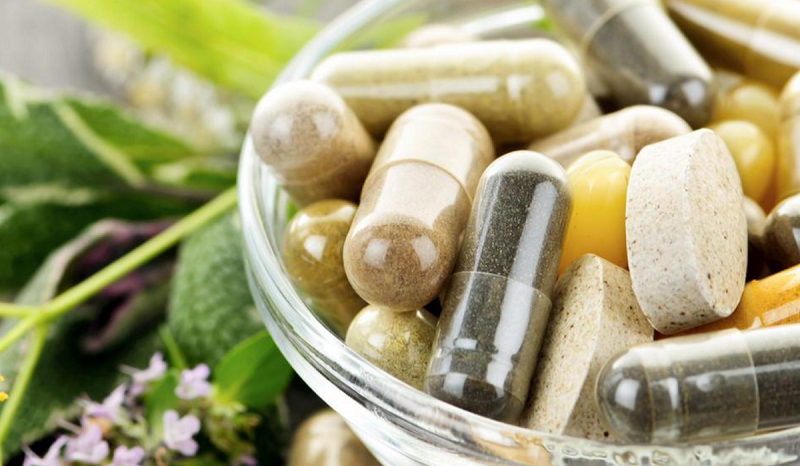The human intestinal microbiome is a boundless ecosystem which performs the broad variety of human functions, both inside and outside the gastrointestinal tract (GI tract). Probiotics is a term in which 'Pro' is a Latin word which means 'for' and 'biotic' is the Greek word which means 'life'. Probiotics are the live microorganisms introduced in to the body for their beneficial qualities. They provide various health benefits to the host when administered in adequate amount.
Probiotics have long been known to affect the various metabolic and immunological parameters through manifold mechanism. The human intestine is the house for more than 100 trillion bacteria and collectively these bacteria are referred as gut microbiome or gut microbiota. These bacteria are naturally found in body but can also be acquired from some food and supplements. The healthy GI tract should contain at least 85% good bacteria for the proper functioning of the body. The most common probiotic recommended for humans are Lactobacillus spp. and Bifidobacterium spp. which produces lactic acid and other useful metabolites. Beside these there are some other such as Enterococcus spp., Pediococcus spp., Streptococcus spp., and Leuconostoc spp. The Lactobacillus spp. is present in fermented foods, oral cavities, GI tract ecosystem, urogentital tract and are found to provide multiple health-promoting benefits. It helps in preventing diarrhea and help people who are not able to digest lactose, the sugar present in milk. The Bifidobacterium are evaluated to be GRAS (generally recognized as safe) microorganisms that are widely consumed as probiotics. These belong to the specific group of bacteria known as lactic acid bacteria (LAB). The Bifidobacterium spp. is found in yogurt, cheese, human vagina, oral cavities and vast majority is present in GT tract. These are the first colonizers who dominate the sterile GI tract of newborns and breast-fed infants, but less of formula-fed infants. There are various studies which show the fewer incidents of GI tract infections in association with breastfeeding. The previous studies show that breastfeeding infants have decreased chances of GI tract infection.
Probiotics are considered as 'friendly bacteria' and are known to grow and multiply in the areas where they usually found to grow and colonize. The microflora of the GI tract is complex but balanced microflora is required for normal digestion and maintaining the intestinal ecosystem homeostasis. The composition of the GI tract microflora of the humans varies with the diet and age.
The composition of the human GI tract microflora depends on various factors such as gestational age, feeding mode during infancy, medication and environmental hygiene. The GI tract microbiota contains about 5 million genes, majority are biosynthetic enzymes, glucosidases and proteases which help to increase the overall metabolic capacity of the host. The metabolic capacity of the GI tract microbiota is comparable with the liver, so the GI tract microbiota can be considered as the additional organ. The probiotics and the probiotic metabolites i.e. organic acid, peptides, animicrobial proteins, H2O2 and short chain fatty acids are favorable and novel strategies for controlling many pathogens and GI tract diseases like inflammatory bowel disease (IBD), irritable bowel syndrome (IBS), infectious diarrhea (may caused by bacteria, virus or protozoa), antibiotic related diarrhea and cancer through multiple mechanism. Probiotics are also beneficial against some lethal microbes like Clostridium difficile in the GI tract. The lactobacillus and bifidobacterium are involved in maintaining healthy GI tract by supplying vitamins, nutrients, prevention against endogenous and exogenous pathogens and protection of intestinal barrier defense system.
Colorectal cancer (CRC) is a complex disease associated with diet and age. The metabolites of the dietary components may affect the mucosa of the intestine or can affect the metabolism of the human body. But, this is evident that probiotics affect or alter the metabolic processes within the GI tract and help in preventing carcinogenesis. Butyrivibrio fibrisolvens, butyrate-producing gut bacteria has been found in human GI tract in rural southern India, where less rate of CRC was observed. The ingestion of the probiotics positively alters the gut microbial population and influences the occurrence of CRC. The possible cancer-preventing dietary supplements include fermented dairy foods containing lactic acid bacteria. The manipulation of gut microbiota by probiotics to reduce the risk of colon cancer is a tremendous approach. This is clear that the probiotics exhibit the ant-carcinogenic attributes which guide us to utilize these probiotics or probiotic-containing foods.
The probiotics even help to protect our brain. The GI tract bacteria are responsible for making serotonin. Serotonin a neurotransmitter present in gastrointestinal tract and the central nervous system of human beings. Serotonin was reported to be an antidepressant and anxiolytic which lighten up the mood. The unhealthy GI tract microbiota can be the cause of various brain related disease viz., anxiety, depression, concentration problems as well as chronic inflammation. The lactic acid bacteria mainly lactobacillus and bifidobacterium act as antioxidants which protects the brain cells from free radical damage. Even now a day’s probiotics are used as therapeutics for the developing world’s people in different ways against various diseases. In the near future bioengineered probiotics or designer probiotics may be a new hope for health and disease.
We have seen that the gut microbiota is helpful to humans in numerous ways by preventing various GI tract diseases like diarrhea, inflammatory bowel disease, and irritable bowel syndrome as well as colon cancer. It also helps to make immunity of the person by multiple mechanisms against various adverse conditions and help to reduce the stress related depression and anxiety by making the happy molecule serotonin. It is clear that gut microbiota is of paramount importance for the general health of the humans. Therefore, we should prefer to eat probiotic rich foods which include yogurt, fermented dairy products, pickles, dark chocolates and other fermented foods. The healthy gut microbiota offers the hope for the general well being of the humans.

